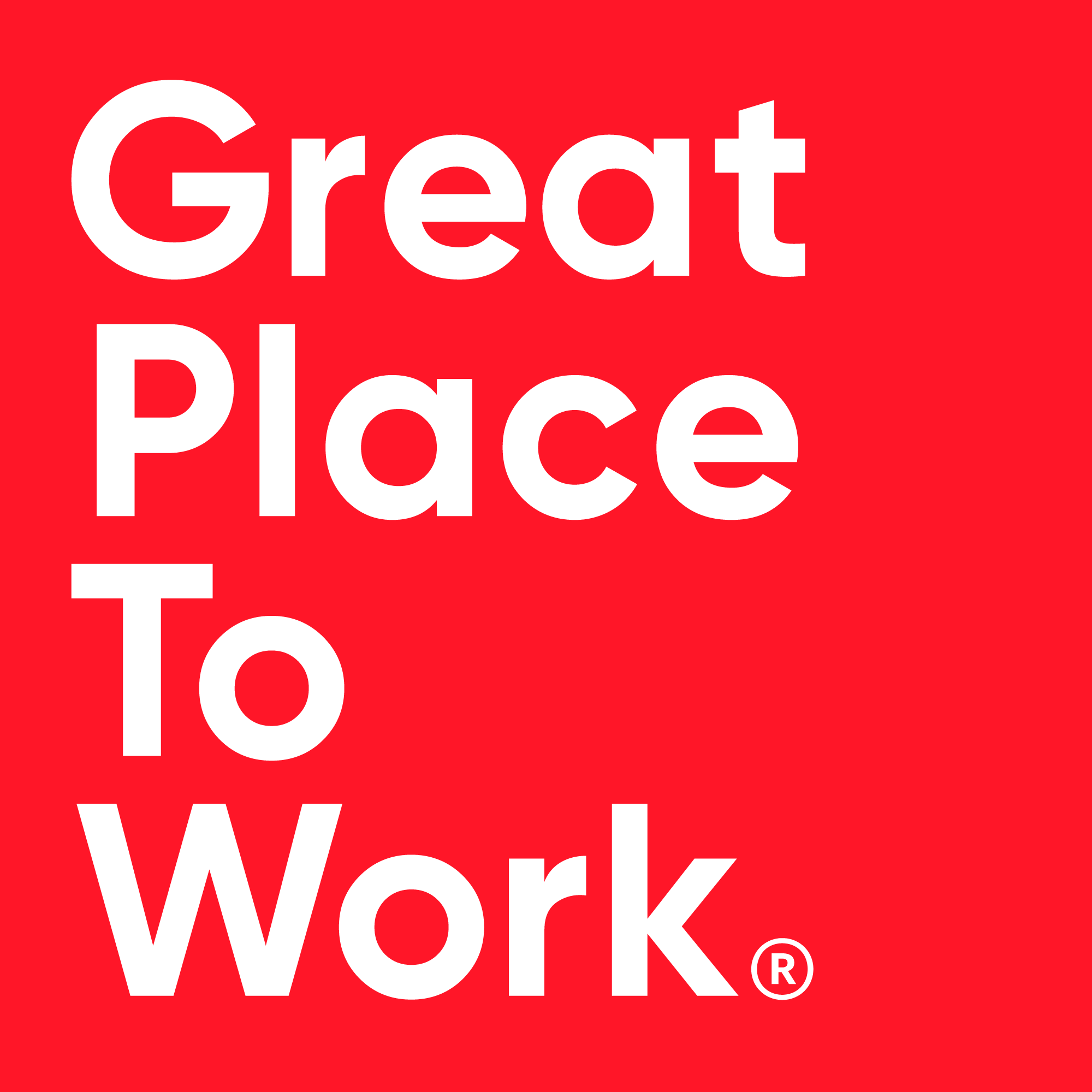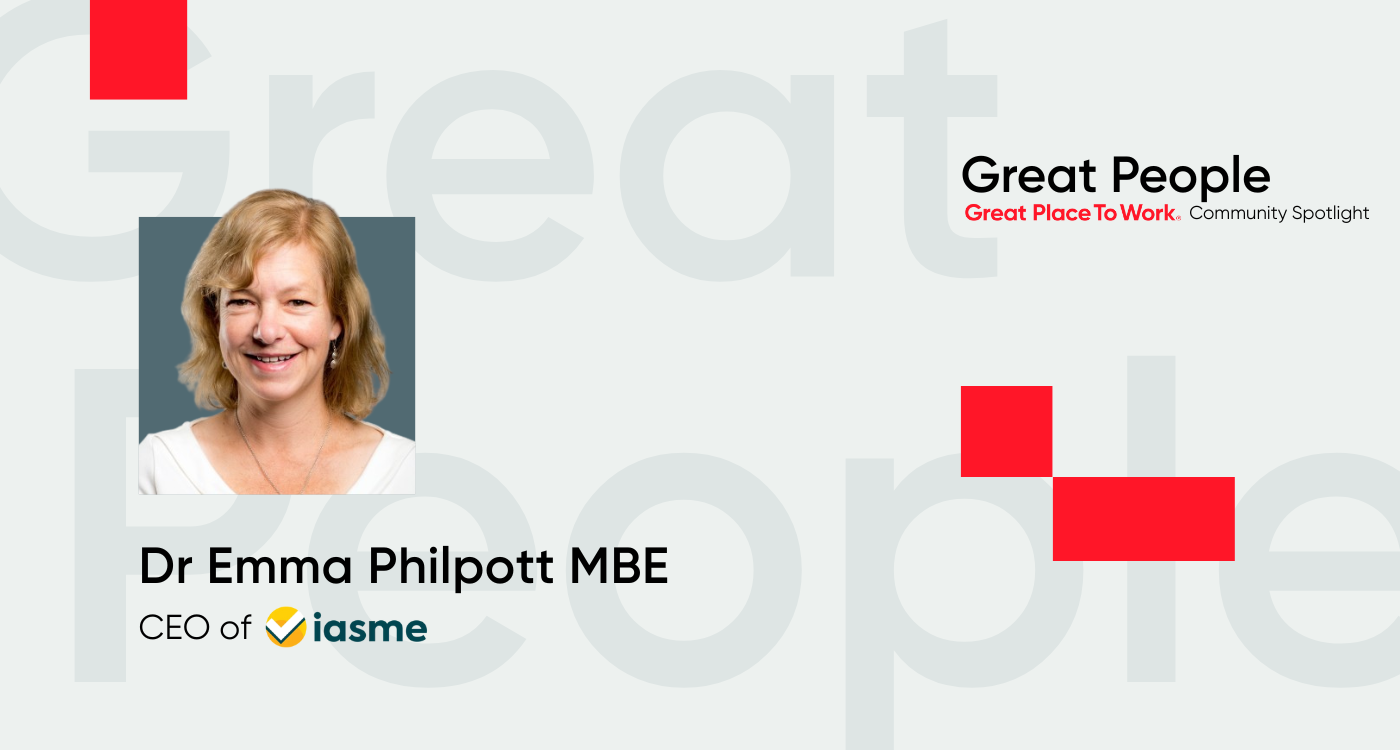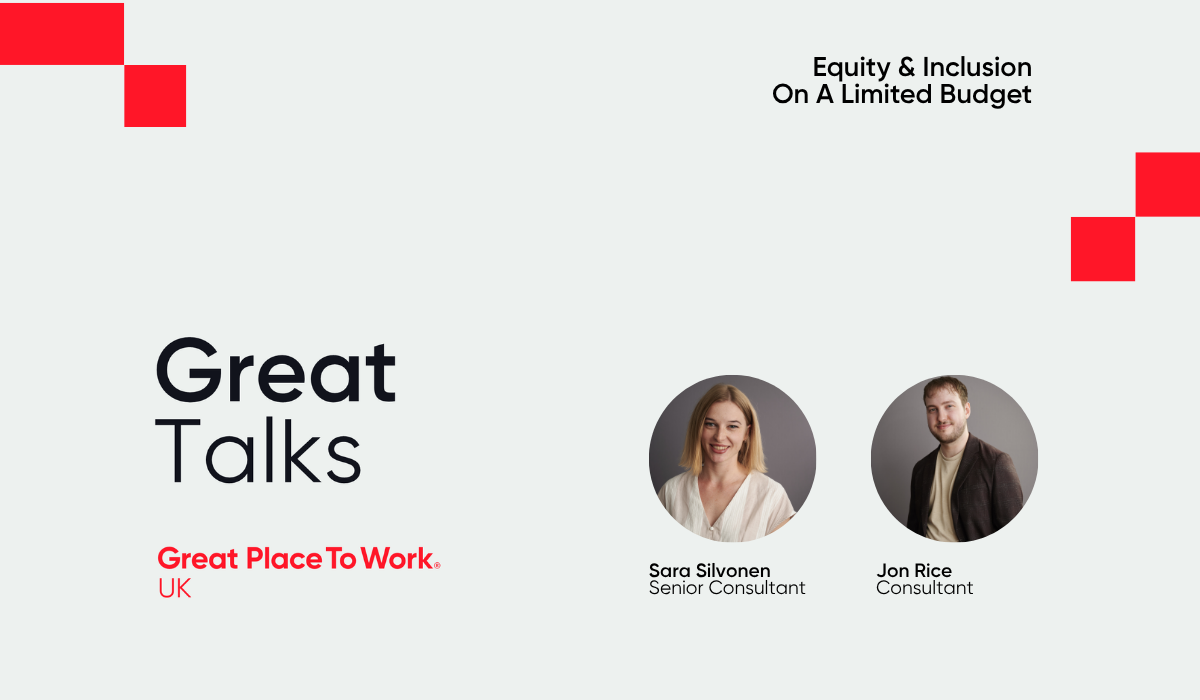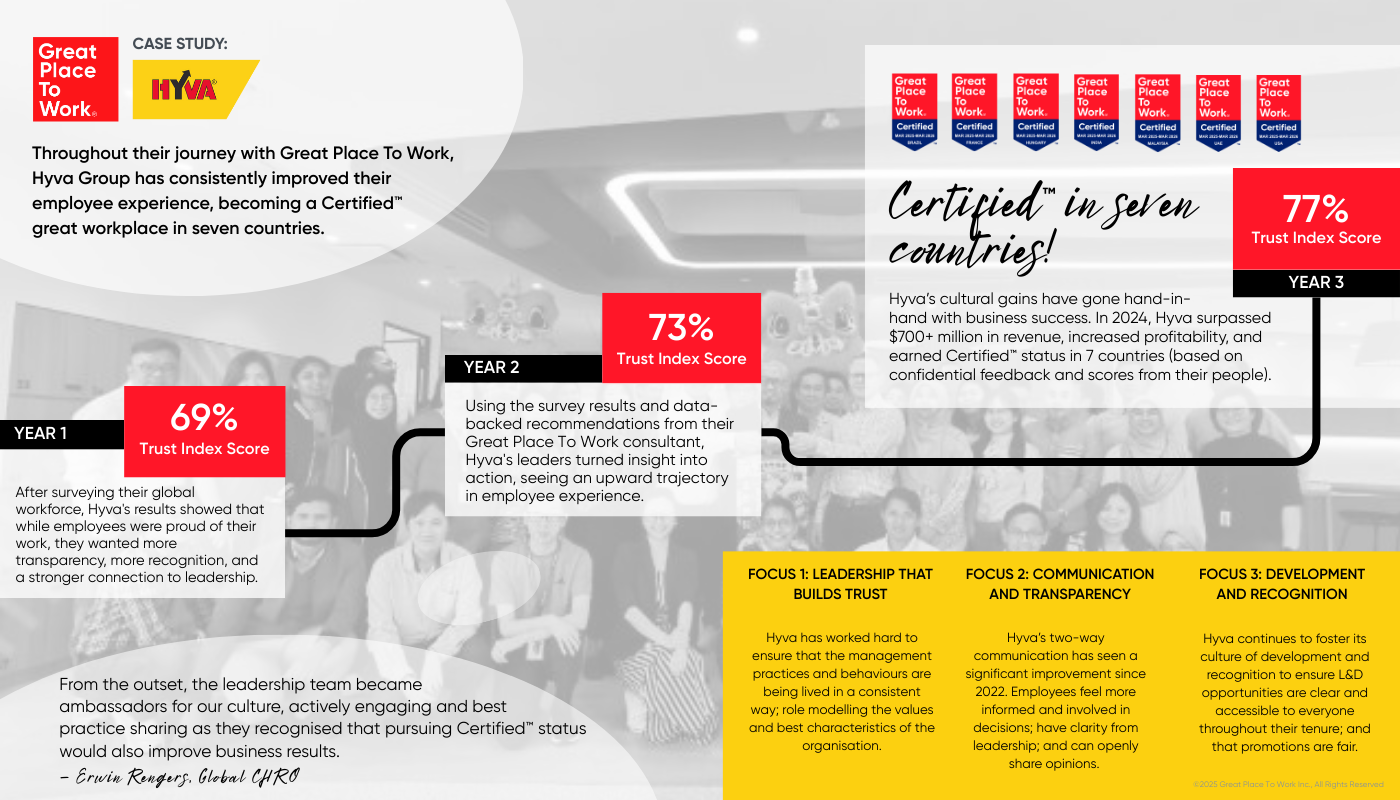As AI seeps into every corner of work, a practical question keeps landing on leadership desks: Should we invest in AI coaching, human coaching – or both? The answer: go hybrid, using a model that delivers your desired outcomes without sacrificing trust.
How we define coaching
At Great Place To Work®, we believe coaching is about trust, empathy, and nuanced understanding that comes from effective listening and dialogue — the very qualities that make great leaders.
Yes, artificial intelligence can offer speed and convenience - whether that be through chatbots delivering quick feedback, or platforms pushing out personalised learning at scale. But delivering the deep, context‑rich relationship work that changes behaviour for the long-term is something AI simply cannot replicate. Hence, research points to a future where top-performing organisations will offer coaching that comprises a thoughtful blend of both.
What is AI coaching?
AI coaching uses artificial intelligence to provide personalised guidance, support, and feedback to help people achieve goals or develop skills. It can involve AI acting as a direct coach, AI tools assisting human coaches with data analysis and recommendations, or conversational AI providing reflective questions and accountability.
Why AI coaching is on the rise
According to HTF Market Intelligence, the global market for AI-powered coaching apps will see annual growth of around 17.9% from 2025 to 2032.1 This covers AI-powered career pathways; career coaching chatbots; and personalised coaching algorithms — all of which are becoming increasingly mainstream.
Some of the reasons why organisations are drawn to digital coaching include:
- Accessibility and scale: AI tools can deliver bite-sized coaching anytime, anywhere, which makes them ideal for large or dispersed teams.
- Efficiency: As McKinsey & Company note, AI can handle logistics, admin, and skills-based training, freeing up human coaches for deeper conversations.2
Yet the same datasets also caution against overreach: while many organisations explore AI for development, far fewer have reported sustained, meaningful results from AI alone.
Efficiency is not the same as impact. Moreover, if most organisations adopt similar AI coaching tools trained on overlapping datasets, the advice could become too uniform or predictable, thereby eroding diversity in leadership thinking. Ultimately, empathy and contextual knowledge is essential for transformational leadership — both of which are human.
More risks with AI coaching
Adopting artificial intelligence in human‑centric domains like coaching requires guardrails. Bias in AI's training data, for example, can skew advice toward dominant demographics.
This can be especially problematic in leadership development. Research shows that biased algorithms often replicate historical patterns of exclusion, which can codify gender, racial, and socioeconomic disparities at scale.3 In a leadership context, AI-driven coaching could normalise traits associated with dominant demographics, limiting diversity of thought and innovation, which in turn undermine organisational efforts toward equity and inclusion.
Privacy and psychological safety are further concerns. Executives may, for example, resist discussing sensitive or confidential issues with a chatbot, particularly if their data could be recorded, categorised, analysed, or repurposed in some way — and possibly without their consent.
Where human coaches make the difference
AI lacks subjective experience. It can imitate empathy but cannot share lived context, which curbs its ability to co‑create meaning in complex human situations.
That gap shows up in multiple ways:
- Researchers from the University of Reading point out that the value of human coaching lies in “the essence of being human: the ability to share personal insights based on lived experience, use humour and metaphor, and create a deep personal connection.”4 These qualities encourage new insights, motivation, and accountability — areas where AI falls short.
- Neuroscience agrees. A 2025 study in Frontiers in Psychology found that interpersonal coaching activates brain regions linked to empathy, reflection, and trust far more than AI-based conversations.5 These are critical foundations for lasting behavioural change.
- And when it comes to cultural nuance, Forbes Technology Council warns that AI often fails to read cultural signals and interpersonal subtleties6 – skills that human coaches bring naturally.
- Non-verbal and situational reading: Text‑first AI can miss shifts in tone, body language or power dynamics, whereas human coaches detect and work with these micro-cues in real time.

Why external human coaching is crucial to success
While AI tools and internal coaching programs can play a valuable role in employee development, external coaching offers unique advantages for shaping senior leaders and managers. These are benefits that neither internal coaches nor AI can fully deliver, namely:
- Fresh perspective and confidentiality: External coaches operating the organisational hierarchy are free from internal politics and performance pressures. This independence creates a safe space for candid conversations and vulnerability — both of which are critical for leadership growth.
-
Specialised expertise with broader insight: External coaches bring diverse experience across industries and cultures, along with advanced certifications and proven methodologies. This breadth helps leaders gain fresh insights and innovative solutions beyond the organisation’s norms.
- Tangible business impact: Executive coaching also delivers measurable ROI. A MetrixGlobal study found a 788% return on investment, and PwC reports an average 7 times the return on investment when hiring an external coach.7
-
Driving real change: Internal coaches may unintentionally reinforce existing norms, whereas external coaches challenge assumptions, encourage critical conversations, and help leaders navigate complex change with confidence. Again, skills that AI and internal programmes struggle to replicate.
The benefits of human-first hybrid coaching
Rather than choosing sides, organisations can optimise their coaching offering by combining AI’s efficiency with the relational depth of external human coaches.
Here’s how to get the best of both worlds:
- Start with clarity: Define which coaching needs are transactional (AI-friendly) and which are transformational (human-led).
- Use AI for scale and support, such as onboarding, pre-work, habit tracking, and micro-learning.
- Reserve humans for depth: Goal-setting, values exploration, and navigating complexity.
- Build safeguards: Ensure your organisation has transparent data policies; bias checks (such as auditing prompts and outputs); and clear escalation paths that move employees from AI to human coaches.
- Protect trust by default. Establish clear privacy notices, minimal viable data capture, and strict access controls. Communicate what’s stored, for how long, and why.
- Measure impact, not just usage: A Global Human Capital Trends report by Deloitte shows that while 75% of organisations explore AI for development, only 21% report meaningful results from AI alone.8 Monitor valuable outcomes like engagement, behaviour change, leadership effectiveness, and business outcomes as opposed to logins or other vanity metrics.
Ultimately, AI coaching is a powerful force multiplier — and a poor relationship substitute.
Organisations should use digital coaching to widen access for employees, personalise practice, and keep momentum between sessions. Human coaches should always be relied on for the work that is inherently human: co‑creating meaning, navigating ambiguity, and building the trust that unlocks sustained change.
Sources:
1. https://htfmarketinsights.com/report/4375397-aipowered-market
3. https://haas.berkeley.edu/wp-content/uploads/UCB_Playbook_R10_V2_spreads2.pdf
4. https://www.tandfonline.com/doi/full/10.1080/17521882.2025.2510643?src=exp-la
5. https://www.frontiersin.org/journals/psychology/articles/10.3389/fpsyg.2024.1364054/full
7. https://coachingfederation.org/blog/coaching-statistics-the-roi-of-coaching-in-2024/
8. https://www.deloitte.com/us/en/insights/topics/talent/human-capital-trends/2023.html












